|
Books Should Be Free Loyal Books Free Public Domain Audiobooks & eBook Downloads |
|
|
Books Should Be Free Loyal Books Free Public Domain Audiobooks & eBook Downloads |
|
Comedies |
|---|
|
Book type:
Sort by:
View by:
|
By: Josephine Van Tassel Bruorton | |
|---|---|
 Summer Boarders; or The Great Jewel Mystery
Summer Boarders; or The Great Jewel Mystery
A rich widow or two. An owner of 1000 acres of fine land. An heiress to the 1000 acres. Nefarious visitors of various sorts after the land, jewels, or whatever else they can get. Meddlers and neighbors. Faithful retainers and stalwart protectors. Comedy abounds. - Summary by ToddHW Cast list: Joshua Wicks, owner of "close onto 1,000 acres": Wayne Cooke Mr. Peter Schultz, sometimes vendor of sausages: Greg Giordano Mr. Barry Bland, an Englishman possessed of a shady reputation and a talkative... | |
By: Lechmere Worrall (1874-1957) | |
|---|---|
 Ann
Ann
Edward Hargraves, a young author, is encouraged by his mother and friend, Billy, to marry a woman in order to understand the fairer sex better and thereby characterize them better in his next book. While he attempts to follow their advice and marry Evangeline, a pleasant but rather uninteresting woman, a daring American reporter has set her eyes on him. She will stop at nothing to interview him and attract his attention. - Summary by Elsie Selwyn Cast List: Rev. Samuel Hargraves: ToddHWEdward Hargraves: Campbell SchelpWilliam “Billy” Lloyd: RHelfmannMrs. Hargraves: Anita Sloma-MartinezEvangeline Lipscomb: thestorygirlAnn Anning: EmmaHattonStage Directions: Elsie Selwyn Edited by: linny | |
By: Lillian Sutton Pelée (1872-1948) | |
|---|---|
 Wives on Strike
Wives on Strike
The "Wives' Welfare Club" is meeting together so they may air grievances about their husbands and the inequality that women experience. During this meeting the wives decide to "go on Strike" and nominate Jane Spink to be the test case. Betty, who is a newlywed of only 30 days, boasts of her husband's perfect qualities and is amused at the other wives' complaints. However, as she returns home she realizes she just might end up on strike as well! - Summary by Jenn BrodaCast List: Betty Albright,... | |
By: Lording Barry (1580-1629) | |
|---|---|
 Ram Alley, or Merry Tricks by Lording Barry
Ram Alley, or Merry Tricks by Lording Barry
Ram Alley, or Merry Tricks, is a bawdy comedy by Lording Barry, a contemporary of Shakespeare. The production bankrupted Barry, landed him in debtor's jail, and set him off on a life of piracy. The action of Ram Alley takes place in a disreputable London lane where lawyers, lords, and ladies rub shoulders with prostitutes and vagabonds. One 19th century editor complained that it was "full of gross passages, allusions, and innuendoes," but more recent commentators have seen past the risque gags and recognised the play's wit, complexity, and intelligence... | |
By: Madeleine Lucette Ryley (1858-1934) | |
|---|---|
 Mice and Men
Mice and Men
No, not the famous “Of Mice and Men” you’re thinking of. Instead, we have a sweet romantic comedy that tells the story of a bachelor, Mr. Embury, who decides to conduct an experiment to see if he can create the perfect wife for himself. To do so, he chooses an orphaned girl named Peggy to become his ward and ultimately his wife. Peggy, however, thinks that Mr. Embury has plans for her to become the wife of his nephew, Captain Lovell, whom she believes is in love with another woman . A critic who was not fond of sentimental stories called this play a fairy story with a sincere spirit and one they could actually believe in... | |
By: Mark Twain (1835-1910) | |
|---|---|
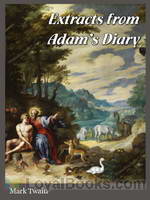 Extracts from Adam's Diary
Extracts from Adam's Diary
Get the true story of Adam and Eve, straight from the source. This humorous text is a day-to-day account of Adam’s life from happiness in the “GARDEN-OF-EDEN” to their fall from grace and the events thereafter. Learn how Eve caught the infant Cain, and Adam takes some time to learn exactly what it is. | |
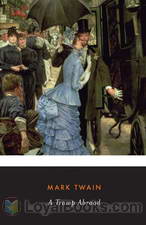 A Tramp Abroad
A Tramp Abroad
A Tramp Abroad is a work of non-fiction travel literature by American author Mark Twain, published in 1880. The book details a journey by the author, with his friend Harris (a character created for the book, and based on his closest friend, Joseph Twichell), through central and southern Europe. While the stated goal of the journey is to walk most of the way, the men find themselves using other forms of transport as they traverse the continent. The book is often thought to be an unofficial sequel to an earlier Twain travel book,The Innocents Abroad... | |
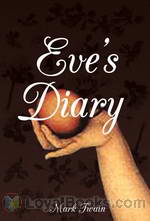 Eve's Diary
Eve's Diary
Eve's Diary is a comic short story by Mark Twain. It was first published in the 1905 Christmas issue of the magazine Harper's Bazaar, and in book format in June 1906 by Harper and Brothers publishing house. It is written in the style of a diary kept by the first woman in the Judeao-Christian creation myth, Eve, and is claimed to be "translated from the original MS." The "plot" of this novel is the first-person account of Eve from her creation up to her burial by, her mate, Adam, including meeting and getting to know Adam, and exploring the world around her, Eden... | |
 Mark Twain's (Burlesque) Autobiography and First Romance
Mark Twain's (Burlesque) Autobiography and First Romance
Mark Twain's (Burlesque) Autobiography and First Romance, a short volume, published by Sheldon & Co., NY in 1871, is Mark Twain's third book. It consists of two stories - First Romance, which had originally appeared in The Express in 1870, and A Burlesque Autobiography (bearing no relationship to Twain's actual life), which first appeared in Twain's Memoranda contributions to the Galaxy. Rather, the content consists of a few short stories of fictional characters who are supposedly part of Twain's lineage... | |
 The American Claimant
The American Claimant
The American Claimant is an 1892 novel by American humorist and writer Mark Twain. The story focuses on the class differences and expectations of monarchic, hierarchical Britain and the upstart, "all men are created equal" America. Twain wrote the novel with the help of phonographic dictation, the first author (according to Twain himself) to do so. This was also (according to Twain) an attempt to write a book without mention of the weather, the first of its kind in fictitious literature. Indeed, all the weather is contained in an appendix, at the back of the book, which the reader is encouraged to turn to from time to time. | |
 Some Rambling Notes of an Idle Excursion
Some Rambling Notes of an Idle Excursion
Written for the Atlantic magazine in 1877, this is a collection of stories about a trip Mark Twain made with some friends to Bermuda. It contains fascinating descriptions of Bermuda the island, and some of its people as well as an explanation of why Bermuda's houses are "so white". | |
By: Mary Keith Medbery Mackaye (1845-1924) | |
|---|---|
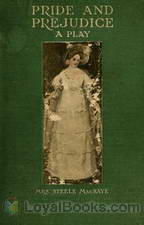 Pride and Prejudice: A Play
Pride and Prejudice: A Play
Pride and Prejudice, a comedy of manners and marriage, is the most famous of Jane Austen's novels. In this dramatic adaption by Mary Keith Medbery Macakaye some liberties are taken with the storyline and characters, but it is still a fun listen or read. Perhaps a good introduction for someone not ready to tackle the complete novel ~ and for the reader familiar with the work, a laugh can be had at the changes that were made in order to adapt it to the stage | |
By: Molière | |
|---|---|
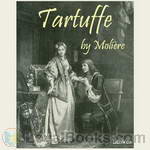 Tartuffe
Tartuffe
Jean-Baptiste Poquelin, known by his stage name Molière, was a French playwright and actor who is considered to be one of the greatest masters of comedy in Western literature. Among Molière's best-known works is Tartuffe or The Hypocrite, written in 1664. Though Tartuffe was received well by the public and even by Louis XIV, its popularity was lessened when the Archbishop of Paris issued an edict threatening excommunication for anyone who watched, performed in, or read the play.Tartuffe, a pious fraud who pretends to speak with divine authority, has insinuated himself into the household of Orgon... | |
By: Moliere (1622-1673) | |
|---|---|
 The Imaginary Invalid
The Imaginary Invalid
The Imaginary Invalid is a three-act comédie-ballet by the French playwright Molière. It was first performed in 1673 and was the last work he wrote. The plot centers around Argan, the 'imaginary invalid' who is completely dependent on his doctors and wants to marry his daughter to a doctor against her will, so that he will always have medical care freely available to him. In an ironic twist of fate, Molière collapsed during his fourth performance as Argan on 17 February and died soon after. | |
By: Molière (1622-1673) | |
|---|---|
 Amphitryon
Amphitryon
"The history of Amphitryon and Alcmene, or rather the myth of the birth of Hercules, is certainly very old, and is to be found in the literature of different nations." Under Moliere's touch, it becomes "One of the most charming and natural comedies composed in French verse.... Sprightliness and vivacity abound in this comedy...." - Summary by Translator Henri Van Laun Cast list: Mercury, in the form of Sosia: Nemo Night: Eva Davis Jupiter, in the form of Amphitryon: Larry Wilson Mercury, in the... | |
 Princess of Elis
Princess of Elis
In the month of May 1664, Louis XIV entertained the Queen-mother, Anne of Austria, and his own wife , Maria Theresa, with a brilliant and sumptuous fete at Versailles.... The second day was distinguished by the representation of The Pricess of Elis [by Moliere].... The Princess of Elis, a comedy-ballet, was intended to represent the struggle between the affections of the male and female sex, a struggle in which victory often remains with the one who seems the furthest from obtaining it.... The author's natural flow of wit and humor was checked by the necessity of accommodating himself to the conventionalities of courtly propriety... | |
 Two Pastorals: an Heroic and a Comic
Two Pastorals: an Heroic and a Comic
Moliere, on the way to the Ballet of the Muses, a court festival, started to write a new Heroic Pastoral. "He chose for his subject a similar one to the history of Florizel and Perdita in Shakespeare's Winter's Tale…. The charm of his writing, the exquisite delicacy of the sentiment, and the freshness of the pastoral scenes, cause us to regret that Moliere wrote only the first two acts of this play and never finished it." Though it was performed this way in Dec 1666 - so maybe there is enough here to enjoy... | |
By: Nathan Field (1587-1620) | |
|---|---|
 Amends for Ladies
Amends for Ladies
Amends for Ladies falls within the genre of Jacobean city comedy. Three women debate which has the better lot: a maid, a wife, or a widow. Lady Honour, the maid, is loved by her servant, Ingen, and disguises herself as a boy to become servant to him. Lady Perfect, the wife, is suspected by her husband, Love-all, of infidelity; Love-all tries to trap his wife by having his devious friend, Subtle, seduce her. A young citizen, Bold, disguises himself as an old woman to enter into the service of the widow, Lady Bright, in the hopes of gaining access to her bed... | |
By: Noël Coward (1899-1973) | |
|---|---|
 Young Idea
Young Idea
A Comedy in Three Acts The Young Idea is a play about two siblings, Gerda eighteen and Sholto twenty-one, who attempt to engineer the reconciliation of their divorced parents. It is full of laughs, love-triangles, and a lot of DRAMA! - Summary by Ambsweet13 Cast List: George Brent: dgulinoGerda : Amanda MehlSholto: BucksawJennifer: JennPrattCicely: Claire ButlerPriscilla Hartleberry: JennPrattClaud Eccles: skypigeonJulia Cragworthy: ambsweet13Eustace Dabbit: Matthew ReeceSibyl Blaith: Jody LebelRodney Masters: Mike ManolakesHuddle : Larry WilsonHiram J. Walkin: skypigeonMaria : April6090Stage Directions: ToddHW Edited by: ambsweet13 and David Olson Proof Listening by: superk and Yangxu | |
 Hay Fever
Hay Fever
In this delightful farce/comedy of manners, the eccentric and theatrical Bliss family invites four hapless guests to their English country house for the weekend. Hijinks ensue. - Summary by WendyKatzHillerCast List: Judith Bliss: WendyKatzHiller David Bliss: ToddHW Sorel Bliss: Jenn Broda Simon Bliss: Tchaikovsky Myra Arundel: Kelly S. Taylor Richard Greatham: Mike Manolakes Jackie Coryton: Jvisi Sandy Tyrell: CassiopeiaSparks Clara: C. Roxanne Maxwell Stage Directions: Jim Locke | |
By: Oscar Wilde (1854-1900) | |
|---|---|
 The Canterville Ghost
The Canterville Ghost
An American diplomat's family moves into an ancient stately mansion. They're warned by the owner that it is haunted by a most horrifying and gruesome spirit who had once cruelly murdered his own wife. The story progresses with creaking floor boards, mysterious passages, dark attics, clanking chains, and weird howling. Yet, the reader is totally unprepared for Oscar Wilde's brand of tongue in cheek humor as he takes all the ingredients of a traditional ghost story and turns it on its head, and creates a hilarious parody instead of a morbid saga! The Canterville Ghost was the first of Oscar Wilde's short stories to be published... | |
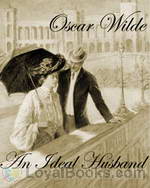 An Ideal Husband
An Ideal Husband
This story opens at a fashionable dinner party in Sir Robert Chiltern's home in the heart of London's stylish Grosvenor Square. One of Lady Chiltern's old school-friends, Mrs. Cheveley, a woman with a dubious past, accosts Sir Robert and threatens to expose a financial crime that he had once participated in, unless he agrees to finance a fraudulent construction project that she's promoting. Lady Chiltern is astounded when her husband who had been the severest critic of this project suddenly begins to speak in its favor... | |
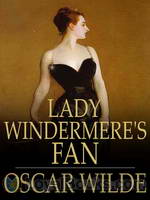 Lady Windermere's Fan
Lady Windermere's Fan
Lady Windermere’s Fan: A Play About a Good Woman is a four act comedy by Oscar Wilde, published in 1893. As in some of his other comedies, Wilde satirizes the morals of Victorian society, and attitudes between the sexes. The action centres around a fan given to Lady Windermere as a present by her husband, and the ball held that evening to celebrate her 21st birthday. | |
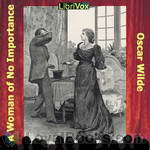 A Woman of No Importance
A Woman of No Importance
A Woman of No Importance is a play by Irish playwright Oscar Wilde. The play premièred on 19 April 1893 at London's Haymarket Theatre. It is a testimony of Wilde's wit and his brand of dark comedy. It looks in particular at English upper class society and has been reproduced on stages in Europe and North America since his death in 1900. | |
By: Owen Wister (1860-1938) | |
|---|---|
 The New Swiss Family Robinson
The New Swiss Family Robinson
A parody of its famous predecessor, this short piece was written by Owen Wister for the Harvard Lampoon | |
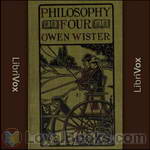 Philosophy 4: A Story of Harvard University
Philosophy 4: A Story of Harvard University
Owen Wister's wry humor enlivens this comedic story of three sophomores during exam week at Harvard. | |
By: P. G. Wodehouse (1881-1975) | |
|---|---|
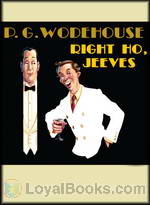 Right Ho, Jeeves
Right Ho, Jeeves
If you're encountering the zany Bertie Wooster and his exceptionally astute Man Friday, Jeeves, for the first time, be assured that you're embarking on a lifetime of fun and laughter! On the other hand, for eternal Wodehouse fans, Right Ho Jeeves provides more glimpses of the delightful world created by one of the best loved English writers. It is the second in the series of Bertie Wooster and Jeeves novels and features some of the regular characters of Brinkley Court, the country seat ruled over by Bertie's much-loved Aunt Dahlia... | |
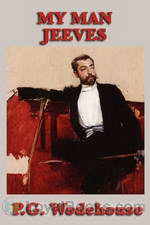 My Man Jeeves
My Man Jeeves
First published in 1919, My Man Jeeves is a collection of short stories featuring the well known fictional characters Jeeves and Bertie Wooster. The compilation consists of eight stories, of which four feature the popular duo while the other four stories feature Reggie Pepper, an early model of Bertie Wooster. Set in the early 20th century, the stories carry much humor, wit, and charming mischief as the characters seem to attract trouble wherever they go. Wodehouse sets the stories in the early 20th century and allows the audience to enter the world of the upper-class establishments, and experience the many awkward situations the characters find themselves in... | |
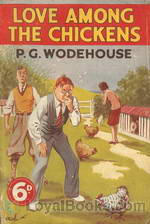 Love Among the Chickens
Love Among the Chickens
A young, but not too brilliant writer is conscripted by a ne'er-do-well friend to help out on a chicken farm in remote Dorset. While traveling to the country, the writer encounters a lovely young girl and her academician father on the train. He is delighted to discover that she is reading a copy of his latest book. In the countryside, he also discovers that the professor and his daughter are neighbors. However, over dinner one night, he gets into an acrimonious debate with the elderly scholar who storms out, furious with his daughter's potential suitor... | |
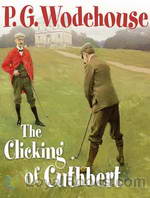 The Clicking of Cuthbert
The Clicking of Cuthbert
The first of two books that he wrote on golfing themes, The Clicking of Cuthbert by PG Wodehouse sparkles with typical Wodehousian wit, humor and general goofiness! An avid golfer himself, Wodehouse published the ten stories in this volume in 1922. In 1924, an American edition titled Golf Without Tears was published. Since then it has enjoyed undimmed popularity among both Wodehouse fans and golfing enthusiasts. Nine of the stories contained in this book are narrated by the Oldest Member, a character who has become a cult figure among Wodehouse fans... | |
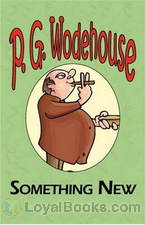 Something New
Something New
When the absent-minded Earl of Emsworth wanders off with the pride of his scarab collection, American millionaire J. Preston Peters is willing to pay $5000 to the person who can get it back for him. Discretion is necessary since Peters’ daughter is engaged to Emsworth’s son. Joan Valentine and Ashe Marson both decide to go after the reward—she as Aline Peter’s ladies maid, and he as Mr. Peter’s valet—and they all end up at Blandings Castle. But is it possible for anyone to steal back the scarab with The Efficient Baxter ever vigilant? This is, IMHO, one of Wodehouse’s funniest novels. –Debra Lynn | |
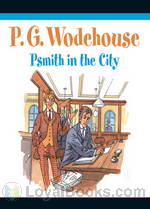 Psmith in the City
Psmith in the City
Mike’s dream of studying and playing cricket at Cambridge are thwarted as his father runs into financial difficulties. Instead, Mike takes on the job of clerk at the “New Asiatic Bank.” Luckily, school friend Psmith, with his boundless optimism and original views, soon joins his department, and together they endeavour to make the best of their new life in London. | |
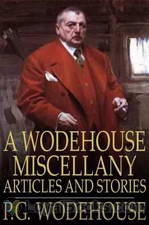 A Wodehouse Miscellany; Articles and Stories
A Wodehouse Miscellany; Articles and Stories
Sir Pelham Grenville Wodehouse was an English comic writer who enjoyed enormous popular success for more than seventy years. Best known today for the Jeeves and Blanding Castle novels and short stories, Wodehouse was also a talented playwright and lyricist who was part author and writer of fifteen plays and of 250 lyrics for some thirty musical comedies. | |
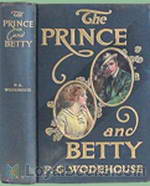 The Prince and Betty
The Prince and Betty
The Prince and Betty is a novel by P. G. Wodehouse. It was originally published in Ainslee's Magazine in the United States in January 1912, and, in a slightly different form, as a serial in Strand Magazine in the United Kingdom between February and April 1912, before being published in book form, in the UK only, by Mills & Boon, London, on 1 May that year. A substantially different version, which incorporated the plot of Psmith, Journalist, was published in the US by W. J. Watt, New York on 14 February 1912, and is the only version now widely available... | |
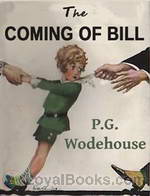 The Coming of Bill
The Coming of Bill
The Coming of Bill tells the story of Kirk Winfield, his marriage to Ruth, and their child called Bill. Bill's upbringing is threatened by the interference of Ruth's busybody writer aunt, Mrs Lora Delane Porter. | |
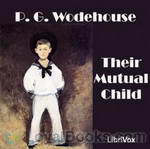 Their Mutual Child
Their Mutual Child
Their Mutual Child (aka The Coming of Bill and The White Hope) is full of the loveable characters, preposterous situations, and opportunities to chuckle, if not outright laughs, that we expect from PG Wodehouse. It lacks the frantic slapstick of some Wodehouse comedy, but has a quieter more reflective humour. Kirk, the erstwhile hero, is a typical Wodehousian hero. At the beginning of the story, he is thoroughly likeable, a healthy, but a somewhat weak and malleable fellow. He dabs at beings a painter for a living, and runs with a gang of hangers-on, who sponge off him... | |
By: Peter Newell (1862-1924) | |
|---|---|
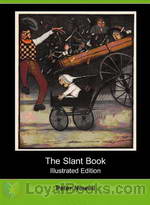 The Slant Book
The Slant Book
The Slant Book is literally the shape of a parallelogram, with the spine of the book running down one side. When opened, facing pages form a “V” shape. All the pictures on the slanted recto pages show a way-too-precocious infant in a carriage [the "go-cart" of yesteryear] racing downhill who has somehow gotten away from his nanny, gleefully creating havoc all along the way! The facing verso pages contain two stanzas of commentary on the charming –if alarming!– illustrations. This book pioneered the “special format” children’s literature of today, such as pop-up books or cutout books like Eric Carle’s The Very Hungry Caterpillar... | |
By: Pierre Beaumarchais (1732-1799) | |
|---|---|
 Follies of a Day; OR, The Marriage of Figaro (English)
Follies of a Day; OR, The Marriage of Figaro (English)
This is Thomas Holcroft's English translation, obtained by attending Pierre Beaumarchais' French play nine times in Paris during its original official staging in 1784. Beaumarchais' play was the basis for Mozart's 1796 opera, and is a satire about lovers' misdoings and French society. Because of its rebellious themes, presented during the troubling times leading up to the French Revolution, Beaumarchais had a very difficult time getting his play past the censors. Once staged, the play was enormously popular with audiences, including the aristocracy despite their understanding of the underlying themes... | |
 Barber of Seville
Barber of Seville
Count Almaviva's heart is stolen when he lays eyes on Rosine, but he worries that she will only love him for his money. Can Figaro help him? This comedy is the first play in Beaumarchais' Figaro trilogy. It was written in 1773, but because of political and legal problems, Beaumarchais could not stage the play until 1775. The Barber of Seville was adapted into at least five operas, the best-known being by Rossini. The other plays in the trilogy are The Follies of a Day: or the Marriage of Figaro and The Guilty Mother... | |
By: Richard Brinsley Sheridan (1751-1816) | |
|---|---|
 The Rivals
The Rivals
The play is set in Bath in the 18th century, a town legendary for conspicuous consumption and fashion at the time. Wealthy, fashionable people went there to "take the waters", which were believed to have healing properties. The plot centres on the two young lovers, Lydia and Jack. Lydia, who reads a lot of popular novels of the time, wants a purely romantic love affair. To court her, Jack pretends to be "Ensign Beverley", a poor officer. Lydia is enthralled with the idea of eloping with a poor soldier in spite of her guardian, Mrs... | |
 School For Scandal
School For Scandal
Richard Brinsley Sheridan's comedy was first performed in 1777 and focuses on the intrigues and scandals of the British upper classes. Lady Sneerwell wants to marry Charles Surface, while Joseph Surface wants to marry Maria, an heiress and ward of Sir Peter Teazle. Maria, however, prefers Charles over Joseph. In order to detach her from Charles, Lady Sneerwell and Joseph spread rumors about an affair between Charles and Lady Teazle, Sir Peter's new young wife. Meanwhile, Sir Oliver Surface, newly returned from the East Indies, assumes various disguises to test his nephews' characters. Misunderstandings, mistaken identities, gossip, and bad behavior abound in this uproarious comedy. | |
By: Richard Harding Davis (1864-1916) | |
|---|---|
 Miss Civilization
Miss Civilization
Miss Civilization, a one act comedy, tells the story of a young woman who matches wits with three burglars attempting to rob her house. | |
By: Richmal Crompton (1890-1969) | |
|---|---|
 Just William
Just William
William is a mischievous eleven year old who is puzzled by the adult world, which is no less puzzled by him. The humor is gentle and pleasing. The series of books is better known in the United Kingdom than in the U.S. ( | |
By: Robert Benchley (1889-1945) | |
|---|---|
 Love Conquers All
Love Conquers All
Sixty-three essays on a variety of topics as wide apart as Family Life in America, Opera Synopses, Bigamy, International Finance and many more, Love Conquers All by Robert Benchley strangely enough does not touch upon romance at all! However, these delightful notes provide hours of browsing pleasure for young and old readers alike. Robert Benchley was a well-known humorist and newspaper columnist, radio and television presenter, actor, scriptwriter and broadcaster. He is also credited with creating the first ever television entertainment show and one of his iconic short films, How to Sleep won an Academy Award in 1936... | |
By: Robert Copland (fl. 1515) | |
|---|---|
 Jyl of Breyntfords Testament
Jyl of Breyntfords Testament
Introduction - This is a collection of ten comic pieces from the 16th century and earlier, as compiled and edited by Frederick Furnivall for private circulation in 1871. Only the first is by Copland. (Introduction by Grant Hurlock) | |
By: Robert Williams Wood (1868-1955) | |
|---|---|
 How to Tell the Birds from the Flowers
How to Tell the Birds from the Flowers
How do you tell apart a parrot from a carrot? A plover from a clover? A bay from a jay? Although there are several ways of differentiating, R. W. Wood’s use of pun and rhyme is one of the most entertaining! | |
By: Ronald Firbank (1886-1926) | |
|---|---|
 Princess Zoubaroff
Princess Zoubaroff
The Princess Zoubaroff is a witty, subversive, and unbelievably suggestive play, far ahead of its time. Through razor-sharp dialogue and outrageous scenarios, Ronald Firbanks takes aim at all of the sacred cows of polite English society: matrimony, motherhood, religion, and sexuality. Enid and Eric are newlyweds, although neither is particularly happy with this new arrangement. While honeymooning at their friends’ vacation home in Florence, Eric and his friend Adrian leave for the mountains. The... | |
By: Saki (1870-1916) | |
|---|---|
 Reginald
Reginald
Saki was the pen name of the British author Hector Hugh Munro (1870 – 1916). His witty, biting and occasionally odd short stories satirised Edwardian culture. Saki is considered a master of the short story and has been compared to O. Henry and Dorothy Parker as well as Noel Coward and Oscar Wilde (who clearly influenced Saki). His first collection of short stories, Reginald, was published by Methuen Press in 1904 though these stories first appeared in the ‘Westminster Gazette’. The stories... | |
By: Sinclair Lewis (1885-1951) | |
|---|---|
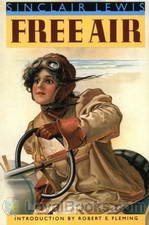 Free Air
Free Air
This road trip novel is set in the early twentieth century and follows the experiences of an aristocratic New Englander and her father as they travel by automobile from Minneapolis to Seattle. She is wooed and won by a noble but simple commoner she meets along the way. Lewis is at his usual wryly humorous self, poking fun at the upper class and treating the common people only slightly better. | |
 Our Mr. Wrenn, the Romantic Adventures of a Gentle Man
Our Mr. Wrenn, the Romantic Adventures of a Gentle Man
"At thirty-four Mr. Wrenn was the sales-entry clerk of the Souvenir Company. He was always bending over bills and columns of figures at a desk behind the stock-room. He was a meek little bachelor--a person of inconspicuous blue ready-made suits, and a small unsuccessful mustache." Mr. Wrenn, however has a rich inner life embellished by his own imagination. When he comes into a modest inheritance, he feels he ought to learn to get out and wander a bit, and then his education begins. He finds life more "interesting", perhaps than he had "imagined". . . (Introduction by Don Jenkins) | |
By: Stephen Leacock (1869-1944) | |
|---|---|
 Frenzied Fiction
Frenzied Fiction
From the cave man to Santa Claus; spies, know-it-alls, and journalists: all are fair game for Leacock’s special brand of humor. He touches on the changes time has brought about in the city, education, and work habits. Among the other topics in this work are nature, fishing, gardening, success, and spirits–both of the departed and of the variety Prohibition prohibited. Each chapter of this book is a standalone story and if you love a good laugh, these stories are for you. In me, Leacock’s wit produced the full range of laughter: smiles, chuckles, guffaws, and some uncontrollable giggles. Also, occasionally, I found myself shedding a tear or two. (Review by Debra Lynn) | |
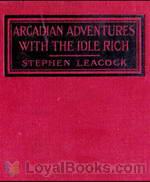 Arcadian Adventures with the Idle Rich
Arcadian Adventures with the Idle Rich
“Arcadian Adventures with the Idle Rich” is a work of humorous fiction by Stephen Leacock first published in 1914. It is the follow-up to his 1912 classic “Sunshine Sketches of a Little Town.” Like that work, it is a sequence of interlocking stories set in one town, but instead of focusing on a small Canadian town in the countryside, it is set in a major American metropolis and its characters are the upper crust of society. Although currently not as well-known as the earlier book, “Arcadian Adventures” was extremely popular in North America at the time of its publication and for a while was considered the greater success... | |
 Winsome Winnie and other New Nonsense Novels
Winsome Winnie and other New Nonsense Novels
Eight silly stories by Canadian humourist Stephen Leacock. | |
By: Susanna Centlivre (1680-1723) | |
|---|---|
 Wonder! A Woman Keeps a Secret
Wonder! A Woman Keeps a Secret
Donna Isabella does not want to marry Don Guzman, her father's choice. Donna Violante's father wants her to become a nun. Isabella is attacked on the street and carried insensible into Violante's house. What will happen next? Confidential letters, secret identities, conniving servants, disguises and other fallderoll await! Supposedly Jane Austen put on a family performance of this play. - Summary by ToddHW Cast list: Don Felix: Greg Giordano Colonel Briton: skypigeon Frederic: Adrian Stephens Don... | |
By: Thomas Dekker (c.1572-1632) | |
|---|---|
 Shoemaker's Holiday
Shoemaker's Holiday
The Shoemaker's Holiday is an Elizabethan play written by Thomas Dekker. It was first performed in 1599 by the Admiral's Men. It falls into the sub-genre of city comedy (depicting ordinary London life).Aristocrat Rowland Lacy falls in love with middle class girl Rose Oateley, but Rose's father and Lacy's uncle refuse to approve the match because of the class difference and Rowland's spendthrift lifestyle. Rowland is told to redeem himself by joining the army fighting in France. To avoid going, he persuades someone else to take his place and disguises himself as a Dutch shoemaker, Hans... | |
By: Thomas Lodge | |
|---|---|
 Rosalynde or, Euphues' Golden Legacie
Rosalynde or, Euphues' Golden Legacie
This novel, which Shakespeare adapted in his pastoral comedy As You Like It, is the archetypal pastoral adventure. Two young persons of high birth, who have recently lost their fathers (one to death, one to banishment), fall in love but are separated almost at once and forced to flee to the Forest of Arden. There they meet again, but as Rosalynde is disguised for safety as a boy, named Ganymede, her lover Rosader does not recognize her. Once Rosader has confided his love to Ganymede, they play a game in which the "boy" poses as Rosalynde to give Rosader practice in wooing... | |
By: Thomas Middleton and Thomas Dekker | |
|---|---|
 The Roaring Girl
The Roaring Girl
The Roaring Girl is a rip-roaring Jacobean comedy co-written by Thomas Middleton and Thomas Dekker and first published in 1611. The play is a fictionalized dramatization of the life of Mary Frith, known as "Moll Cutpurse", a woman who had gained a reputation as a virago in the early 17th century. (The term "roaring girl" was adapted from the slang term "roaring boy", which was applied to a young man who caroused publicly, brawled, and committed petty crimes.) The play combines the exploits of the cross-dressed Moll with the amorous adventures of a trio of merchants' wives, and the forbidden romance between Sebastian Wengrave and Mary Fitzallard. | |
By: Thomas Southerne (1660-1746) | |
|---|---|
 Oroonoko
Oroonoko
Based on Aphra Behn's 1688 novel , Thomas Southerne's Oroonoko is seen by scholars today as the driving force that kept Behn's work from fading into obscurity. During the eighteenth and nineteenth centuries, it was considered even more popular than the novel, presenting theatergoing audiences with a highly touching tale of pathos and tragedy involving the eponymous prince-turned-slave and his undying devotion to his beloved wife, Imoinda. However, in this version, unlike in Behn's novel, Imoinda is a white woman, and there is also a comic subplot involving the husband-hunting Welldon sisters that caters to Restoration tastes ... | |
By: Thompson Buchanan (1877-1937) | |
|---|---|
 Civilian Clothes
Civilian Clothes
What happens when wartime romance and talents encounter the post-war civilian world? "I'm going to take you to - " "Racine?" "If you're my wife you'll go with me to Hell!" "I'd rather go there than Racine." "Did anybody ever tell you that you were a snob?" - Summary by ToddHW Cast list: Billy Arkwright, Twenty-five, late Lieutenant, A. E. F.: Andrew Gaunce Nora, Maid: Annie Mars General McInerny, U. S. A, fifty: ToddHW Jack Rutherford, Late Lieutenant, N. A.: DavyDave Florence Lanham, Twenty-one: Jenn Broda Mrs... | |
 Woman's Way
Woman's Way
"A Woman's Way" belongs to a class of comedy curiously rare on our native stage in recent seasons, the comedy of smart people, with a flavor of character study to give it dignity." "In this comedy, it is "inevitable" that the wife and the other woman should meet in the presence of the husband, and that they should come to open grapple under the very eyes of the audience. The joy of [Buchanan's] comedy, of course, in no small measure is due to the fact that the other woman is not at all the sort of antagonist the wife expected; that she is, in fact, charming, with worldly poise equal to the occasion... | |
By: Titus Maccius Plautus (254 BCE-184 BCE) | |
|---|---|
 Pseudolus: or, The Cheat
Pseudolus: or, The Cheat
About two dozen comedies of the Roman playwright Plautus have survived the years, with many of them ending up rewritten and recast by other playwrights such as Moliere. This one, Pseudolus, was part of the source for A Funny Thing Happened on the Way to the Forum. - Summary by ToddHW Cast list: Simo, an old gentleman of Athens: ToddHW Calidorus, his son, in love with Phoenicium: Tomas Peter Charinus, the friend of Calidorus: Adam Bielka Callipho, the friend of Simo: Alan Mapstone Pseudolus, the servant... | |
 Trinummus: The Three Pieces of Money
Trinummus: The Three Pieces of Money
Buried treasure, reckless son, exile, young love, betrayal, detection - all as relevant today as when this comedy was written 2200 years ago. - Summary by ToddHW Cast list: Luxury: Sonia Poverty: Availle Charmides, an Athenian merchant: ToddHW Lesbonicus, the son of Charmides: Rémi Callicles, a friend of Charmides: Mike Manolakes Megaronides, a friend of Callicles: David Purdy Stasimus, the servant of Charmides and Lesbonicus: Adrian Stephens Philto, a wealthy Athenian: Algy Pug Lysiteles, the son of Philto, and a friend of Lesbonicus: VocalPenguin A Sharper: Alan Mapstone Stage Directions: Wayne Cooke Editing: ToddHW | |
 Miles Gloriosus; The Braggart Captain
Miles Gloriosus; The Braggart Captain
Pleusicles loves Philocomasium, but she is kidnapped by Pyrgopolinices. Palaestrio, faithful servant to Pleusicles, witnesses this and goes to tell his master, but is captured by Pirates and ends up a servant to Pyrgopolinices as well. Palaestrio still gets word to Pleusicles, who arrives on scene. Palaestrio then invents a complex and daring plan involving mistresses, supposed twin sisters, disguises, family friends in the right places, and a monkey to try to escape Pyrgopolinices and reunite Pleusicles and Philocomasium... | |
 Bacchides: or, The Twin Sisters
Bacchides: or, The Twin Sisters
Twin sisters, separated at birth to different lands. Later, Mnesilochus falls in love with one of them, only to see his friend Pistoclerus apparently with her. Great complications abound. Eventually all is explained and everyone joins together to carouse. - Summary by ToddHW Cast list: Silenus, the Divinity, who speaks the Prologue: ToddHW Nicobulus, an aged citizen of Athens: Adrian Stephens Mnesilochus, his son: Greg Giordano Philoxenus, another aged citizen of Athens: Alan Mapstone Pistoclerus,... | |
 Stichus; or, The Parasite Rebuffed
Stichus; or, The Parasite Rebuffed
"Antipho, a wealthy and jovial old gentleman of Athens, has two daughters, Pilumena and Pamphila. They are married to two brothers, Epignomus and Pamphilus, who, having run through their property in the company of idlers and Parasites, have, with the view of retrieving their fortunes, taken to merchandize [overseas trade]." The brothers have, in fact, been gone so long trying to regain their riches that Antipho is getting ready to marry off the daughters again. Will the brothers arrive back in time... | |
 Menaechmi; or, The Twin Brothers
Menaechmi; or, The Twin Brothers
Menaechimus was carried away as a child to Epidamnus. Years later his twin-brother arrives also in Epidamnus, where because of his resemblance to his brother, he is mistaken for him by everybody. "This play was the foundation of Shakespeare's Comedy of Errors." - Summary by ToddHW and Translator Cast list: Menaechimus of Epidamnus: Greg Giordano Menaechimus Sosicles, his twin-brother: Wayne Cooke Peniculus, a Parasite: Alan Mapstone Messenio, the servant of Menaechimus Sosicles: Rémi Cylindrus,... | |
 Aulularia; or, The Concealed Treasure
Aulularia; or, The Concealed Treasure
Euclio, a miserly old Athenian, has discovered a pot of gold in his house, Afraid it will be found and taken, he watches with the greatest anxiety and moves the treasure around, concealing it first in one spot and then another. Until.... - Summary by ToddHW Cast list: The Household God, who speaks the Prologue: ToddHW Euclio, an aged Athenian: Greg Giordano Megadorus, uncle of Lyconides: Algy Pug Lyconides, a young Athenian: Inkell Strobilus, servant of Megadorus and Lyconides: Alan Mapstone Pythodicus, servant of Megadorus: Kerry Adams Anthrax, Cook: ToddHW Congrio, Cook: Rapunzelina Eunomia, the sister of Megadorus: Kristin G... | |
By: Unknown | |
|---|---|
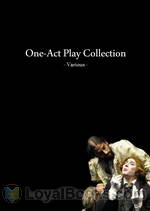 One-Act Play Collection
One-Act Play Collection
One-Act Play Collection includes 6 one-act plays in the public domain. | |
By: Upton Sinclair (1878-1968) | |
|---|---|
 Naturewoman
Naturewoman
The Mastersons, a wealthy Bostonian family, await the arrival of their cousin Anna in the wake of her grandfather's death. Though born in Boston, Anna, who prefers the name Oceana, spent most of her life on a tropical island in the Pacific with her father. A free spirit, her practices and values surrounding proper dress, romance, and entertainment clash with those of her conservative relatives. What will happen as patience and tolerance wear thin for both parties when alluring Oceana catches the... | |
By: W. S. Gilbert (1836-1911) | |
|---|---|
 Patience (Bunthorne's Bride)
Patience (Bunthorne's Bride)
A comic operetta which is a satire on the themes of fashion and pretension and hero-worship. Bunthorne is a poet who pretends to be highly "idealised" in order to impress the ladies. They all worship him, except for Patience, the dairy maid, who is the only one he loves. However, his grand plan goes awry with the arrival of Grosvenor who is more idealised and more poetical then he is. The ladies all flock after Grosvenor instead, until Bunthorne curses him with poor fashion sense and stoutness! But will the curse bring Bunthorne his Patience? | |
 Pirates Of Penzance; Or The Slave Of Duty (Version 2)
Pirates Of Penzance; Or The Slave Of Duty (Version 2)
In this recording, one person reads the entire play, all parts, including the stage directions. Even without the support of Arthur Sullivan’s music and the interpretation of actors, the consummate silliness of Gilbert’s libretto entertains. The Pirates of Penzance; or, The Slave of Duty is a comic opera in two acts, with music by Arthur Sullivan and libretto by W. S. Gilbert. The story concerns Frederic, who, having completed his 21st year, is released from his apprenticeship to a band of tender-hearted pirates... | |
 Mikado, Or The Town of Titipu (version 2)
Mikado, Or The Town of Titipu (version 2)
In the town of Titipu, flirting is punishable by death on the command of the Mikado himself! But what happens when the Lord High Executioner is himself condemned to die? And what secret does the wandering minstrel Nanki-Poo hide, that the Mikado and his entire entourage come to witness his execution? "The Mikado" premiered in 1885, when it broke all records for the longest-running musical. It remains arguably the most popular of the Gilbert & Sullivan operettas. Occasionally described as "English ladies with knitting needles in their hair", Gilbert disguised his criticism of British politics by the Japanese setting... | |
 Engaged
Engaged
This comedy is by Gilbert on his own without Sullivan. "Listen to me. You love this girl?" "I love her sir, a'most as weel as I love mysel' !" "Then reflect how you are standing in the way of her prosperity." "Sir, I'm puir on pocket, but I've a rich hairt." - Summary From The Play Cast list: Cheviot Hill, a young man of property: Matthew Reece Belvawney, his friend: skypigeon Mr. Symperson: Alan Mapstone Angus Macalister, a Lowland peasant lad: ToddHW Major McGillicuddy: Craig Franklin Belinda Treherne: Emmi Kranz Minnie, Symperson's daughter: Jenn Broda Mrs... | |
 Sweethearts (Version 2)
Sweethearts (Version 2)
Subtitled "An Original Dramatic Contrast", the play presents two neighbors, Harry and Jenny, parting in Act 1 and then meeting again 30 years later in Act 2 after Harry's return from India. - Summary by ToddHW Cast list: Mr Harry Spreadbrow: Rob Marland Wilcox, a Gardener: ToddHW Miss Jenny Northcott: Jenn Broda Ruth, a Maidservant: Sonia Stage Directions: MichaelMaggs Editing: ToddHW | |
 Tom Cobb; or Fortune's Toy
Tom Cobb; or Fortune's Toy
Tom Cobb: "Why, there's a squalid old pauper idiot, a patient of his, who's got no name of his own, and Whipple [Doctor] christened him "Tom Cobb", because he says he's the ugliest old lunatic he ever saw and reminds him of me. And all the boys in the neighborhood have taken it up, and he's been known as Tom Cobb for the last two years. That's pleasant of Whipple.... One Tom Cobb's enough at a time!" What happens to young Tom if the old Tom dies and all young Tom's bills are now erased since he be dead... | |
 Sorcerer
Sorcerer
Alexis Pointdextre gets his family sorcerer to brew up a love potion. But what happens when it gets out of control? This two act operetta was a success and convinced Gilbert and Sullivan to go ahead and collaborate on H.M.S. Pinafore the next year. - Summary by ToddHW Cast list: Sir Marmaduke Pointdextre, an elderly Baronet: Andrew Kennedy Alexis, of the Grenadier Guards - his son: rwraptor Dr. Daly, Vicar of Ploverleigh: Scotty Smith John Wellington Wells, of J. W. Wells and Co., Family Sorcerers: ToddHW Notary: Tchaikovsky Lady Sangazure, a Lady of ancient lineage: April Mendis Aline, her daughter - betrothed to Alexis: Annie Mars Mrs... | |
By: W. Somerset Maugham (1874-1965) | |
|---|---|
 Lady Frederick, a Comedy in Three Acts
Lady Frederick, a Comedy in Three Acts
Lady Frederick is a comedy by the British writer W. Somerset Maugham, written early in his career. The play was first seen in London in 1907, and was very successful, running for 422 performances. The title role was played by Ethel Irving. In New York it was first performed in 1908, with Lady Frederick played by Ethel Barrymore, who reprised her role in the play's film adaptation, The Divorcee. In the play, Lady Frederick is an Irish widow, seriously in debt; she must deal with suitors who have various motives for proposing marriage, and with the man with whom she once had an affair... | |
By: Walter Ben Hare (1880-1950) | |
|---|---|
 Sunshine
Sunshine
Ye lords and ladies who have gathered here to see our little comedy of cheer, I bid you welcome to the Sunshine play, And hope 'twill drive your troubles all away. This delightful comedy is sure to brighten your day as we join an amusing group of characters while they recover from various ailments at the Sunshine Sanitarium. - Summary by Prologue and Jenn Broda Maudelia McCann, aged ten: Annie Mars Mrs. Bunch McCann, of Detroit, the mother: mleigh Mrs. Sol Whipple, of Whipple's Corners, Conn... | |
 Civil Service
Civil Service
Subtitled "An American Drama in Three Acts. A Play with a Punch." "A comedy drama of American life depicting the joys and sorrows, the heartaches and struggles and temptations of a small group of government employees working in a post office in a small city in the middle west. There is the stern inspector, the officious postmaster, the busybody mail clerk, the ambitious young clerk..., the kind hearted old man who carries the rural route, the raw recruit and the noble hearted, plucky little stamp clerk, who bravely stifles her own feelings and lives for the advancement of her friends... | |
 Hoodoo
Hoodoo
Everybody is in town for the wedding of Brighton Early and Miss Amy Lee. Unfortunately that includes Brighton's former flame, his handsome friend Billy with wandering eyes, a king's ransom in family jewels, a marvelous Egyptian scarab with a supposed history of evil influence. And, of course, a clever burglar. Along with several other characters to round out the cast of this farce.... - Summary by ToddHW Cast list: Brighton Early, about to be married: Greg Giordano Billy Jackson, the heart breaker: Tomas Peter Professor Solomon Spiggot, an authority on Egypt: ToddHW Hemachus Spiggot, his son, aged seventeen: Adrian Stephens Mr... | |
By: Walter Hackett (1876-1944) | |
|---|---|
 It Pays To Advertise
It Pays To Advertise
An early screwball comedy, the plot revolves around a Soap Manufacturing Mogul's attempt to get his idle-rich son to make something of himself. This involves a Countess who speaks only French ; the son's sweetheart ; a hard-sell theatrical press-agent , and a new soap company set up by the son in competition with his father. “No. 13 Soap ... It's Unlucky for Dirt.” - Summary by Son of the Exiles Cast list: MARY GRAYSON : Annie Mars JOHNSON : Alan Mapstone COMTESSE DE BEAURIEN : Sonia RODNEY... | |
By: William Congreve (1670 -1729) | |
|---|---|
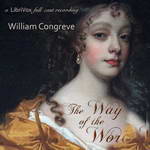 The Way of the World
The Way of the World
The Way of the World is a play written by British playwright William Congreve. It premiered in 1700 in the theatre in Lincoln's Inn Fields in London. It is widely regarded as being one of the best Restoration comedies written and is still performed sporadically to this day.The play is based around the two lovers Mirabell and Millamant (originally famously played by John Verbruggen and Anne Bracegirdle). In order for the two to get married and receive Millamant's full dowry, Mirabell must receive the blessing of Millamant's aunt, Lady Wishfort... | |
By: William Mountfort (1664-1692) | |
|---|---|
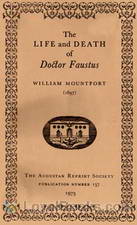 Life and Death of Doctor Faustus Made into a Farce
Life and Death of Doctor Faustus Made into a Farce
| |
By: William Rowley (1585-1626) | |
|---|---|
 Changeling
Changeling
The Changeling is a sensational 1622 tragicomedy by Thomas Middleton and William Rowley that comprises two intertwining plots. The first involves Beatrice-Joanna, daughter of the governor of Alicante, and her unruly passion for Alsemero, despite the fact that she is engaged to Alonzo de Piracquo. She enlists the aid of her father's servant De Flores to kill Alonzo so that she can marry Alsemero. However, she does not anticipate that De Flores, who is in love with her, will demand payment for the deed... | |
By: William S. Gilbert (1836-1911) | |
|---|---|
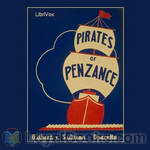 The Pirates of Penzance
The Pirates of Penzance
The Pirates of Penzance; or, The Slave of Duty is a comic opera in two acts, with music by Arthur Sullivan and libretto by W. S. Gilbert. The story concerns Frederic, who, having completed his 21st year, is released from his apprenticeship to a band of tender-hearted pirates. He meets Mabel, the daughter of Major-General Stanley, and the two young people fall instantly in love. Frederic finds out, however, that he was born on 29 February, and so, technically, he only has a birthday each leap year... | |
By: William Shakespeare (1564-1616) | |
|---|---|
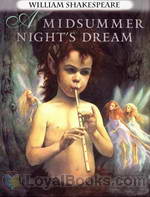 A Midsummer Night's Dream
A Midsummer Night's Dream
Summer nights, romance, music, comedy, pairs of lovers who have yet to confess their feelings to each other, comedy and more than a touch of magic are all woven into one of Shakespeare's most delightful and ethereal creations – A Midsummer Night's Dream. The plot is as light and enchanting as the settings themselves. The Duke of Athens is busy with preparations for his forthcoming wedding to Hippolyta the Amazonian Queen. In the midst of this, Egeus, an Athenian aristocrat marches in, flanked by his lovely daughter Hermia and her two suitors, Lysander and Demetrius... | |
 As You Like It
As You Like It
In a tiny French dukedom, a younger brother usurps his elder brother's throne. Duke Senior is banished to the Forest of Arden along with his faithful retainers, leaving his lovely daughter Rosalind behind to serve as a companion for the usurper's daughter, Celia. However, the outspoken Rosalind soon earns her uncle's wrath and is also condemned to exile. The two cousins decide to flee together and join Duke Senior in the forest. Meanwhile, a young nobleman, Orlando is thrown out of his home by his cruel older brother Oliver... | |
 The Merchant of Venice
The Merchant of Venice
William Shakespeare's The Merchant of Venice was probably written between 1596 and 1598, and was printed with the comedies in the First Folio of 1623. Bassanio, an impoverished gentleman, uses the credit of his friend, the merchant Antonio, to borrow money from a wealthy Jew, Shylock. Antonio pledges to pay Shylock a pound of flesh if he defaults on the loan, which Bassanio will use to woo a rich heiress, Portia. A subplot concerns the elopement of Shylock's daughter Jessica with a Christian, Bassanio's friend Lorenzo... | |
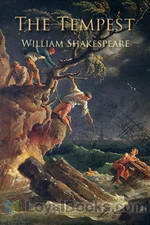 The Tempest
The Tempest
Banished from his own lands by a usurping brother, Prospero and his daughter Miranda have been living on a deserted island for years, until fate brings the brother within the range of Prospero's powers. Will he seek revenge, or reconcilement? | |
 Much Ado About Nothing
Much Ado About Nothing
Written around the middle of his career, Much Ado About Nothing is one of Shakespeare's great festive comedies. The men are back from the war, and everyone is ready for romance. The dashing young Claudio falls for Hero, the daughter of Leonato, governor of Messina, and his friend Don Pedro helps him secure her affection. These youthful lovers are contrasted with the more experienced (and more cynical) Benedick and Beatrice, who have to be tricked into falling in love. Don Pedro's bastard brother, Don John, provides the intrigue, and the dimwitted constable Dogberry provides the laughs. | |
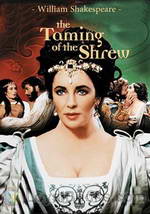 The Taming of the Shrew
The Taming of the Shrew
The Taming of the Shrew is one of Shakespeare's earliest comedies, and was inspired by classical Roman comedy and the Italian commedia dell'arte. Baptista Minola, a rich gentleman of Padua, has two daughters: Katherina, renowned for her sharp tongue, and Bianca, who is sought after by multiple suitors. Baptista decides that Bianca cannot marry until her elder sister finds a husband. Enter Petruchio, who has come to "wive it wealthily in Padua," and who is convinced by Bianca's suitors to woo Katherina. The play ultimately poses the question of who is the bigger shrew: Kate or Petruchio. The subplot involves the subterfuge employed by Lucentio to woo the lovely Bianca. | |
 All's Well That Ends Well
All's Well That Ends Well
Despite its optimistic title, Shakespeare's All's Well That Ends Well has often been considered a "problem play." Ostensibly a comedy, the play also has fairy tale elements, as it focuses on Helena, a virtuous orphan, who loves Bertram, the haughty son of her protectress, the Countess of Rousillon. When Bertram, desperate for adventure, leaves Rousillon to serve in the King's army, Helena pursues him. | |
 The Comedy of Errors
The Comedy of Errors
The Comedy of Errors is one of William Shakespeare's earliest plays, believed to have been written between 1592 and 1594. It is his shortest and one of his most farcical comedies, with a major part of the humour coming from slapstick and mistaken identity, in addition to puns and word play. The Comedy of Errors tells the story of two sets of identical twins that were accidentally separated at birth. Antipholus of Syracuse and his servant, Dromio of Syracuse, arrive in Ephesus, which turns out to be the home of their twin brothers, Antipholus of Ephesus and his servant, Dromio of Ephesus... | |
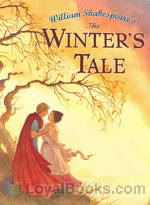 The Winter's Tale
The Winter's Tale
Mad with jealousy, King Leontes of Sicilia orders his best friend Polixenes killed, his child abandoned, and his wife put on trial for adultery. Sixteen years later, Perdita, raised as a shepherd's daughter, falls in love with Polixenes's royal son and returns to her father's kingdom. | |
 Measure For Measure
Measure For Measure
Generally considered one of Shakespeare's problem plays, Measure for Measure examines the ideas of sin and justice. Duke Vincentio turns Vienna's rule over to the corrupt Angelo, who sentences Claudio to death for having impregnated a woman before marriage. His sister Isabella, a novice nun, pleads for her brother's life, only to be told that he will be spared if she agrees to relinquish her virginity to Angelo. | |
 Love's Labour's Lost
Love's Labour's Lost
Love's Labour's Lost is an early comedy by William Shakespeare. Ferdinand, the King of Navarre, and his three friends take a vow of study and seclusion for three years, during which they are forbidden to see or speak to women. Their vows are immediately tested by the arrival of the Pricess of France and her three ladies to the King's court. | |
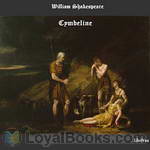 Cymbeline
Cymbeline
Cymbeline is one of Shakespeare's late romances, which (like The Tempest and The Winter's Tale) combines comedy and tragedy. Imogen, the daughter of King Cymbeline of Britain, angers her father when she marries Posthumus, a worthy but penniless gentleman. The King banishes Posthumus, who goes to Rome, where he falls prey to the machinations of Iachimo, who tries to convince him that Imogen will be unfaithful. Meanwhile, the Queen (Imogen's stepmother) plots against her stepdaughter by trying to plan a match between Imogen and her worthless son Cloten. | |
 The Two Gentlemen of Verona
The Two Gentlemen of Verona
The Two Gentlemen of Verona is the earliest comedy written by Shakespeare (and possibly his first play), probably written around 1590-91. It focuses on two friends, Valentine and Proteus, whose friendship is disrupted by their mutual passion for the lovely Silvia. Proteus jilts Julia in order to pursue Silvia; she responds by enlisting the help of her maid Lucetta to dress as a boy and go after Proteus. The play also includes some wonderfully comic supporting characters, particularly Launce and his scene-stealing dog Crab. | |
 Troilus and Cressida
Troilus and Cressida
Troilus and Cressida is Shakespeare's "problem" play about the Trojan War. As the opening Chorus tells us, the play "begins in the middle" of the epic conflict, and counterpoints the drama of battle with the romance of the title characters. Just as Agamemnon and his Greek forces (particularly the smooth-tongued Ulysses) attempt to woo the invincible Achilles to resume fighting on their side, the Trojan go-between Pandarus tries to bring together Troilus, a son of King Priam, with his niece, the lovely Cressida. | |
 The Merry Wives of Windsor
The Merry Wives of Windsor
The Merry Wives of Windsor is a comedy by William Shakespeare, first published in 1602, though believed to have been written prior to 1597. It features the fat knight Sir John Falstaff, and is Shakespeare's only play to deal exclusively with contemporary Elizabethan era English middle class life. | |